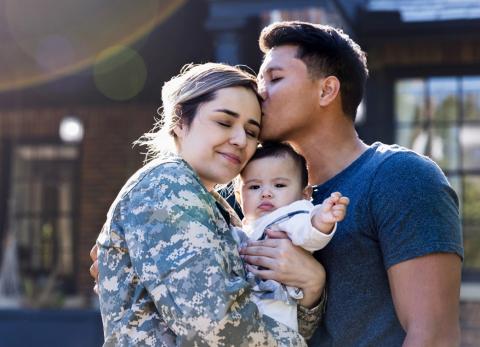Legal Information
Legal Options for Kinship Caregivers
Click the + beside each legal option below to learn more.
- Adoption
Severs all the birth parents’ rights and responsibilities. The kinship caregiver becomes the parent in the eyes of the law.
- Open or Cooperative Adoption
As part of an adoption, the kinship caregiver, birth parents and child develop an agreement for post-adoption contact with the birth parents.
- Guardianship by Probate Court
For kinship caregivers, the guardianship designation allows them to access services on behalf of the child that otherwise might prove impossible. Unlike adoption, the parents can go back to court and ask for the guardianship to be terminated.
Guardianship does not sever the birth parents’ rights and responsibilities.
Parents typically retain the rights:
- To visit the child at the discretion of the guardian unless otherwise ordered by the Court.
- Consent to adoption and/or name change
Parents keep the obligation to financially support the child although child support is not ordered by the Probate Court and must be pursued separately through the State.
- Temporary Guardianship
Temporary guardianships are for short term situations where a guardian is needed to care for a child. It could involve situations, for example, where the parents are in prison, away from home for work, or deployed oversees in the military for a short tour.
The birth parent(s) maintain parental rights.
- Limited Guardianship
Limited guardianships are “limited” by the powers the court grants the guardian. For situations involving children, limited guardianships are used to give only certain enumerated powers to a guardian, such as the power to enroll the child in school or approve medical care.
The birth parent(s) maintain parental rights.
- Standby Guardianship
Parents can continue to be parents and not have their parental rights and responsibilities terminated but have help with day-to-day parenting duties. Typically, standby guardian laws allow parents to designate a standby guardian in the event of their incapacity or debilitation; upon that triggering event, the person designated as the standby files a petition in court to be so named and thereby has the authority to consent and access services on behalf of the child.
In the event the parent/guardian or primary caregiver is detained or deported, the standby guardian would immediately have guardianship of the child when they get notice of that “administrative separation” and within a certain timeframe would need to file a petition with the court to be appointed the guardian.
The birth parent(s) maintain parental rights.
- Legal Custody
Legal custody is a similar status to guardianship but is usually granted by a different court that has different procedures. The status of “guardian” may give access to more services and rights than “legal custodian.”
The birth parent(s) maintain parental rights.
- Power of Attorney
Under power of attorney laws, parents complete a form or handwritten document that states what type of authority they are giving the caregiver. This law allows the power of attorney:
- To be designated for six months to a year, so it may not be the best option for long term caregivers.
- To confer all powers over the care of a child, with the notable exceptions of the powers to consent to marriage or adoption.
A parent has the right to revoke the power of attorney at any time; therefore, this may not be a good option for caregivers who have a conflictual relationship with a parent(s).
The birth parent(s) maintain parental rights.
Legal Videos and Fact Sheets
Click the photos below to watch videos about legal options.

Adopting a child is a permanent decision as it ends the child’s legal relationship with their parents. Learn about the process to adopt and key factors involved.
Fact Sheet
Being a guardian of a child involves both legal and personal duties. Learn about the types of guardianships, the process to become a guardian, and the responsibilities of a guardian.
Fact Sheet
A power of attorney, or POA, allows parents or legal custodians to give someone else authority to make certain decisions for the child. Learn about the process and types of POAs.
Fact Sheet
Learn how kinship caregivers can gain the legal authority to enroll a child in school and receive medical care.
Fact Sheet
Learn about special circumstances in a family such as third-party custodians, grandparent visitation rights, and how parental military service and parental domestic violence impact custody.
Fact Sheet